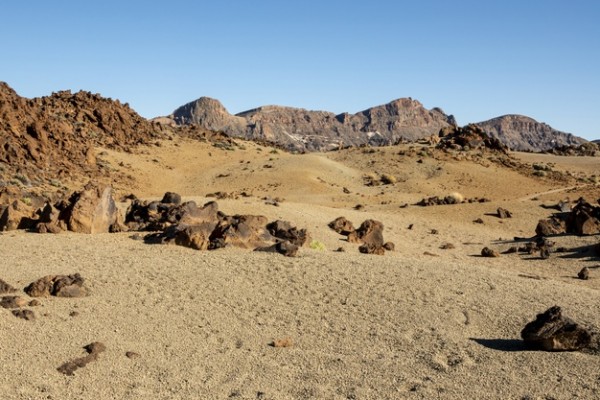
We are beginning Advent, these weeks of preparation for Christmas that every year become an invitation to prepare the ways of the Lord. That is, an invitation to ask ourselves what are we doing, and what attitudes do we embrace, so that the gospel of Jesus may be a vivid and central reality in our lives. Such was the message of John the Baptist, who is, along with Mary, the main character of Advent. The voice that, in the desert, told those who came to listen to him (quoting Isaiah): «Prepare the way of the Lord, make his paths straight. Every valley shall be filled, and every mountain and hill shall be made low, and the crooked shall be made straight, and the rough ways made smooth» (Luke 3, 4-5).
There is something odd in the fact that John preached in the desert. If he had an important message to share, if he wanted to reach as many people as possible, why did he go to the desert? Would not have been more logical to go to the city, and to stand in front of the temple of Jerusalem or in one of the town busiest squares? We could smile and ask ourselves if perhaps the problem was that John did not have a good public relations advisor or campaign manager. He wanted to be heard, and yet he flew to the empty desert!
Obviously, there is in all this something far more serious than the lack of sound publicity. In the densely symbolic language of the gospels, the desert where John preached is more than a geographical place. It is a symbol, and a symbol that must be understood using another symbol: the city.
The city represents society, with all its achievements, but also with its blatant injustices. The city is, indeed—then and now—, the place where social inequality becomes more obvious, where the very rich live a short distance from the very poor. In the countryside everybody gets by with about the same. It is in the city where some dwell in palaces and enjoy the more sophisticated means of comfort while other beg for a piece of bread at the very doorstep of the villas of the wealthy (let’s remember Lazarus, dying at the door of the house of that rich man who feasted sumptuously every day).
The desert where John preaches symbolizes precisely the rejection of the city. Thus, the place of his ministry becomes an integral part of the Baptist’s message. In order to be in a path of conversion and to really prepare the ways of the Lord, the first thing we need to do is to move away from the city, to abandon the dynamics which make inequality possible, to distance ourselves from the mentality that rules in the city. By fleeing to the desert, John shows the content of the conversion he proposes.
When Advent arrives and we look at John the Baptist, oftentimes we think that to go with him to the desert means to slow down, to avoid distractions and to look for quiet moments, to meditate in silence. And that by doing all this we will be preparing the ways of Lord. While this is quite true, we should not forget the other meaning of going to the desert: to reject injustice, to distance ourselves from every attitude that fosters injustice, and to look for a place that is not intoxicated by the selfish mentality that creates inequality.
If we do not move away from the city, it will be very difficult for us to prepare the ways of the Lord. Not just because the city is filled with distractions. Also, mainly, because to live in the middle of the city, without paying any attention to the injustices that make it possible, will prevent us from having the sensitivity that should be typical of those who want to follow Jesus.









